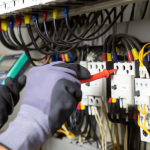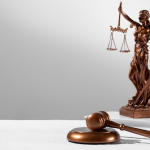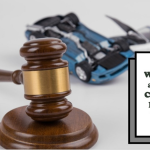As a boat owner, you know that your vessel is more than just a means of transportation—it’s an investment, a source of joy, and often a significant part of your lifestyle. Protecting your marine assets is crucial whether you’re cruising the open seas or enjoying tranquil lake waters. This guide will walk you through best practices and practical tips to keep your boat in top shape, safe from harm, and ready for your next adventure.
Why Protecting Your Marine Assets Matters
Before diving into specific strategies, let’s consider why safeguarding your boat and related equipment is so important:
1. Financial protection: Boats represent a substantial investment. Proper care preserves their value.
2. Safety: A well-maintained vessel is safer for you, your passengers, and others on the water.
3. Reliability: Regular maintenance and protection measures reduce the likelihood of breakdowns and interruptions to your boating plans.
4. Longevity: With proper care, your boat can provide enjoyment for many years to come.
Now, let’s explore key focus areas for protecting your marine assets.
Regular Maintenance: The Foundation of Protection
Consistent maintenance is the cornerstone of safeguarding your boat. Here’s what you should focus on:
Engine Care
Your boat’s engine is its heart. Keep it healthy with these steps:
• Regular oil changes
• Checking and replacing filters
• Inspecting belts and hoses for wear
• Monitoring coolant levels
Specialized attention is often necessary for outboard motors. If you’re uncomfortable performing maintenance, consider professional outboard repair services to keep your engine in prime condition.
Hull Maintenance
Your boat’s hull is its first line of defense against the elements. Protect it by:
• Regularly cleaning and waxing the exterior
• Inspecting for cracks or damage
• Applying antifouling paint as needed
• Checking and replacing zinc to prevent galvanic corrosion
Electrical System Checks
Electrical issues can be both dangerous and damaging. Safeguard your boat’s electrical system by:
• Inspecting wiring for signs of wear or corrosion
• Testing batteries and replacing them as needed
• Ensuring all lights and navigation equipment are functioning properly
Protecting Your Boat When It’s Not in Use
How you store your boat when it’s not in use can significantly impact its longevity and condition.
In-Water Storage
If you keep your boat in the water year-round:
• Use a high-quality boat cover to protect from sun and rain
• Implement a regular schedule for bottom cleaning
• Consider using a dehumidifier to prevent mold and mildew inside the cabin
Dry Storage
For boats stored on land:
• Use a custom-fit cover or shrink wrap for winter storage
• Store in a climate-controlled facility if possible
• Properly winterize all systems before long-term storage
Deterring Theft and Vandalism
Unfortunately, boats can be targets for theft and vandalism. Implement these security measures:
• Install a GPS tracking system
• Use high-quality locks on your boat and trailer
• Remove valuable equipment when the boat is not in use
• Consider a boat alarm system for added protection
Insurance
While preventive measures are crucial, sometimes the unexpected happens. That’s where insurance comes in.
Choosing the Right Policy
When selecting boat insurance:
• Understand the difference between actual cash value and agreed value policies
• Consider additional coverage for personal effects and towing
• Look for policies that offer fuel spill liability and wreckage removal
Document Everything
To facilitate potential claims:
• Keep detailed maintenance records
• Regularly update your inventory of equipment and valuables
• Take photos of your boat and equipment annually
Weather Protection
Mother Nature can be tough on boats. Here’s how to protect your vessel from various weather conditions:
Sun Damage
Prolonged sun exposure can fade paint, crack vinyl, and degrade various materials. Combat this by:
• Using UV-resistant covers when the boat is not in use
• Applying UV-protective sprays to vinyl and rubber components
• Storing your boat in shaded areas when possible
Storm Preparation
If you live in an area prone to hurricanes or severe storms:
• Develop a storm plan well in advance
• Know your marina’s policies for storm preparation
• Have necessary supplies (extra lines, fenders, etc.) readily available
Winterization
For those in colder climates, proper winterization is crucial:
• Drain all water systems to prevent freezing damage
• Add fuel stabilizer to prevent fuel system issues
• Lubricate all fittings and moving parts
Ongoing Education
The world of boating is always changing, with new technologies, regulations, and best practices emerging regularly. Stay ahead of the curve by:
• Attending boat shows and seminars
• Joining boating clubs or organizations
• Subscribing to boating magazines or online forums
• Taking advanced boating courses
Technology
Embrace technology to enhance your boat’s safety and security:
• Use smartphone apps for weather monitoring and navigation
• Install automated bilge pump systems with alarms
• Consider remote monitoring systems for tracking your boat’s status
Environmental Responsibility
Being a responsible boater not only protects the environment but also safeguards your investment:
• Use environmentally friendly cleaning products
• Properly dispose of oil, batteries, and other hazardous materials
• Be mindful of wildlife and sensitive ecosystems when boating
Creating a Maintenance Schedule
To tie all these elements together, create a comprehensive maintenance schedule:
• Daily checks before and after use
• Weekly cleaning and inspection routines
• Monthly more in-depth checks and maintenance tasks
• Seasonal preparations (winterizing, de-winterizing)
• Annual professional inspections and services
Conclusion
Safeguarding your marine assets is an ongoing process that requires attention, care, and a proactive mindset. By implementing these best practices and tips, you’re not just protecting a boat—you’re preserving experiences, memories, and future adventures.
Remember, every moment spent on maintenance and protection is an investment in your boating future. It may seem like a lot to manage, but the rewards are well worth it: a reliable, safe, and long-lasting vessel that’s ready to take you on your next aquatic journey whenever you are.
So, chart your course for proper boat care. With these strategies in your toolkit, you’ll be well-equipped to navigate the waters of marine asset protection, keeping your boat in shipshape condition for years to come. Happy boating, and may your journeys always bring you safely back to shore!
Lynn Martelli is an editor at Readability. She received her MFA in Creative Writing from Antioch University and has worked as an editor for over 10 years. Lynn has edited a wide variety of books, including fiction, non-fiction, memoirs, and more. In her free time, Lynn enjoys reading, writing, and spending time with her family and friends.















